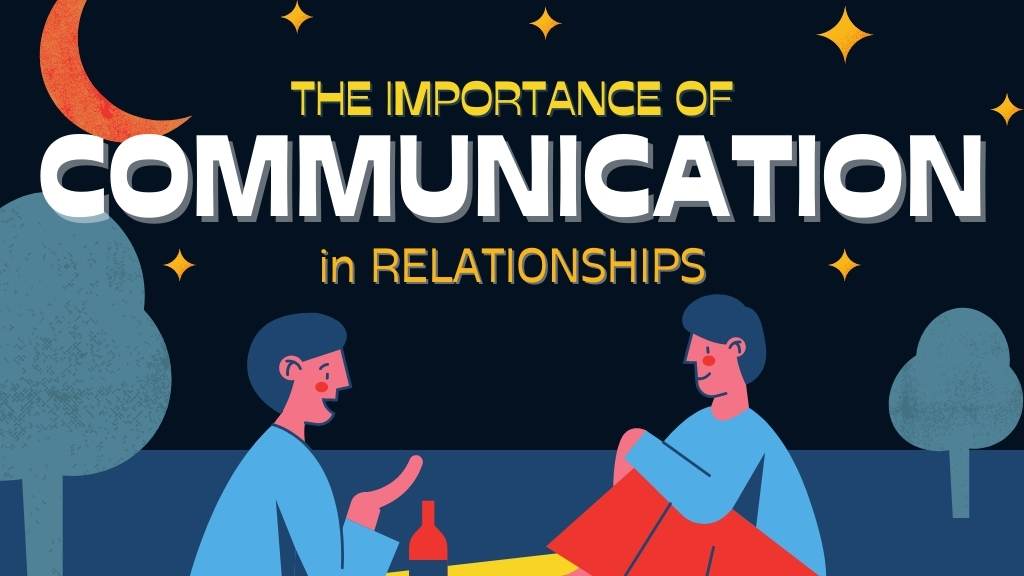Anger is preparation for control
We all experience anger at some point in our lives and relationships. It’s a natural emotion that arises when we feel threatened, frustrated, or powerless. Anger is a signal that something is wrong and needs to be addressed. However, some people tend to use anger as a means to gain control over others, and this can lead to a pattern of behavior that is harmful to themselves and those around them.
The Power of Anger
Verbal threats and angry facial expressions often cause others to change their behavior. People tend to act to avoid the consequences of their angry expressions. Because angry outbursts produce immediate changes in the behavior of others, they are rewarded and can quickly become habitual.

The Control Habit
Using anger as a means of control can become a favorite method of problem-solving for some individuals. It’s important to realize that seeking more control by becoming angry is a method that we use to solve problems. When this becomes our favorite method for dealing with most problems, we develop the anger habit or the control habit. When we use anger to solve most problems in a particular area of our lives, such as relationships, work, or parenting, we develop a relationship anger habit, a work anger habit, or a parenting anger habit.
Relationship Anger Habits
For example, an otherwise mild-mannered person may have only one way of dealing with relationship problems: seeking dominance in the relationship or finding out who is dominant. The dominant person then gets to call the shots. This is the wolfpack solution to all relationship problems. The “top dog” threatens, and the others fall in line. Anger is about solving problems of a certain kind by gaining control.
The use of anger to gain control in relationships is a major reason why marriages and relationships, in general, are in such trouble today. When people in a relationship expect each other to get angry, it can start a cycle of bad behavior. One person becomes angry and uses it as a means of control, which triggers the other person to become defensive and angry as well. This can turn into a full-blown fight, with each person trying to get the upper hand on the other. This can get even worse when one or both parties have a toxic personality.
To break this cycle, we need to understand what anger is and why we get angry. Anger is a natural response to a perceived threat or injustice. It’s a way of saying “This is not okay” and motivating us to take action. However, when we use anger as a means of control, it becomes a destructive force in our lives.

Why Marriages and Relationships Are in Trouble
Both men and women use control as a tool to achieve their ends in relationships. Women use threats such as withdrawal of affection, hurt feelings, and inattention to servile tasks in a struggle for control with their husbands. However, men have used economic and legal status that allowed them total control over the welfare of other members of the family. As undesirable as male domination was, it preserved the marriage, just as alpha individuals (established dominant individuals) preserve a group of wolves or chimpanzees. Unlike marriages, wolf packs stay together. Men used to hold the biggest stick in battles for control, so anger didn’t end relationships.
To break the cycle of using anger as a means of control, we need to learn alternative ways of solving problems. This can mean learning how to talk to people well, showing empathy and compassion, and letting go of our need to be in charge. It’s important to recognize that we can’t control everything in life and that trying to do so will only lead to frustration and anger.
In the end, anger can be helpful when it pushes us to act when we see something unfair or dangerous. However, when we use anger as a means of control, it becomes a destructive force in our lives and can harm our relationships with others. Learn how to master your anger. Use it as a force of good to navigate common relationship pitfalls.



 Lack of communication.
Lack of communication.  Infidelity. Cheating on a partner can be one of the most devastating things that can happen in a relationship. Infidelity can destroy trust and make it difficult to maintain a healthy connection.
Infidelity. Cheating on a partner can be one of the most devastating things that can happen in a relationship. Infidelity can destroy trust and make it difficult to maintain a healthy connection. Growing Apart. As people grow and change, it’s natural for relationships to evolve. However, if partners grow too far apart, it can be difficult to maintain a healthy connection.
Growing Apart. As people grow and change, it’s natural for relationships to evolve. However, if partners grow too far apart, it can be difficult to maintain a healthy connection. Lack of intimacyPhysical and emotional intimacy are important aspects of a healthy relationship. When partners don’t make time for intimacy, it can be difficult to maintain a strong connection.
Lack of intimacyPhysical and emotional intimacy are important aspects of a healthy relationship. When partners don’t make time for intimacy, it can be difficult to maintain a strong connection.
 One of the most common reasons for self-sabotage is the fear of failure. When we fear that we may not succeed or live up to our own expectations, we may subconsciously undermine our own efforts and prevent ourselves from taking the necessary steps to achieve our goals.
One of the most common reasons for self-sabotage is the fear of failure. When we fear that we may not succeed or live up to our own expectations, we may subconsciously undermine our own efforts and prevent ourselves from taking the necessary steps to achieve our goals. Setting realistic goals and action plans is key to overcoming self-sabotage. Break down your goals into manageable steps and create a clear plan of action that outlines the specific actions that you will take to achieve your goals. Celebrate your progress along the way, and be kind and compassionate to yourself when things don’t go as planned.
Setting realistic goals and action plans is key to overcoming self-sabotage. Break down your goals into manageable steps and create a clear plan of action that outlines the specific actions that you will take to achieve your goals. Celebrate your progress along the way, and be kind and compassionate to yourself when things don’t go as planned.
 There are many things that can cause relationship anxiety. This includes past traumas, different attachment styles, and bad communication.
There are many things that can cause relationship anxiety. This includes past traumas, different attachment styles, and bad communication. 
 Anxiety is a common emotion that many people feel in a long-distance relationship. It can be caused by the fear of losing your partner, a lack of physical intimacy, or a lack of communication. Anxiety can often lead to negative thoughts, worry, and stress, which can put a strain on your relationship.
Anxiety is a common emotion that many people feel in a long-distance relationship. It can be caused by the fear of losing your partner, a lack of physical intimacy, or a lack of communication. Anxiety can often lead to negative thoughts, worry, and stress, which can put a strain on your relationship.

 The most important thing to remember on a first date is to be yourself. Because this is not a
The most important thing to remember on a first date is to be yourself. Because this is not a  Planning the date ahead of time can help ensure it goes smoothly. Consider your date’s interests and plan an activity that you both will enjoy. This could be anything from going to a museum to taking a walk in the park. Make sure to confirm the details of the date with your date before the actual date.
Planning the date ahead of time can help ensure it goes smoothly. Consider your date’s interests and plan an activity that you both will enjoy. This could be anything from going to a museum to taking a walk in the park. Make sure to confirm the details of the date with your date before the actual date. Dressing appropriately for the date shows that you care about your appearance and your date’s opinion. Make sure to dress for the occasion and choose clothes that make you feel
Dressing appropriately for the date shows that you care about your appearance and your date’s opinion. Make sure to dress for the occasion and choose clothes that make you feel  Listening is an important skill on a first date. Show your date that you’re interested in what they have to say by
Listening is an important skill on a first date. Show your date that you’re interested in what they have to say by  Politeness and respect are crucial on a first date. Remember to be courteous and respectful to your date and others around you, such as waitstaff or other customers.
Politeness and respect are crucial on a first date. Remember to be courteous and respectful to your date and others around you, such as waitstaff or other customers. 


 How do you navigate long-distance relationships? The key is communication. If either you or your partner is relocating, spend time talking before you separate ways physically. Don’t bury your emotions, share what’s on your mind. Learn to solve issues as a pair
How do you navigate long-distance relationships? The key is communication. If either you or your partner is relocating, spend time talking before you separate ways physically. Don’t bury your emotions, share what’s on your mind. Learn to solve issues as a pair The most important thing I can say to anyone in a
The most important thing I can say to anyone in a  Determine a regular time to have daily video calls by phone. Spend some time together talking about your day. You can have a FaceTime date in a variety of ways. To spend time together, you could prepare a meal, eat it, watch a movie, or simply have a conversation.
Determine a regular time to have daily video calls by phone. Spend some time together talking about your day. You can have a FaceTime date in a variety of ways. To spend time together, you could prepare a meal, eat it, watch a movie, or simply have a conversation.

 In general, a narcissistic personality disorder is characterized by grandiose attitudes and behaviors. It is a tendency to be acutely self-aware, in addition to lacking empathy for others. Narcissists think of themselves as being exceptionally unique and special.
In general, a narcissistic personality disorder is characterized by grandiose attitudes and behaviors. It is a tendency to be acutely self-aware, in addition to lacking empathy for others. Narcissists think of themselves as being exceptionally unique and special. Narcissism has been linked to several serious mental health issues. It can have disastrous effects on a person’s mental health and their relationships with other people. Because narcissists often find it hard to connect with other people in a meaningful way, they use and manipulate others in their relationships. Research that shows victims of narcissistic behavior are more likely to have mood and anxiety disorders. These include:
Narcissism has been linked to several serious mental health issues. It can have disastrous effects on a person’s mental health and their relationships with other people. Because narcissists often find it hard to connect with other people in a meaningful way, they use and manipulate others in their relationships. Research that shows victims of narcissistic behavior are more likely to have mood and anxiety disorders. These include: Although not all people with narcissistic personality disorder display
Although not all people with narcissistic personality disorder display  Accepting that what you went through was emotional abuse begins with this realization. That’s good news because it means you can start to release any guilt or shame you’ve been feeling. Naturally, you would initially want to
Accepting that what you went through was emotional abuse begins with this realization. That’s good news because it means you can start to release any guilt or shame you’ve been feeling. Naturally, you would initially want to